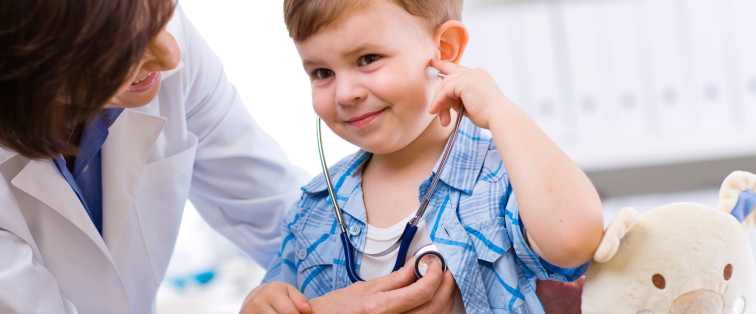Empathy: It’s Never Too Late to Learn

There’s nothing more dangerous to a physician’s projected calm and collected demeanor than sitting across from a parent whose world is crumbling. Medical students and physicians often fall back on discussing volumes of medical information that they have learned—often as a shield from patients’ and families’ intense emotional experiences. But what’s best for patients and families in these circumstances?
Not surprising to anyone who’s been a patient or parent of an ill child, empathy is incredibly important medicine. When patients have an empathetic medical provider they are more satisfied with their care, more likely to take their prescribed medicine, and have better health outcomes. What may be surprising is that physicians also benefit from BEING empathetic with lower rates of burnout, higher well-being, and less medical-legal risk.
But as many who have been through the healthcare system can share, empathy often seems to be a luxury, not the norm. Some people shrug saying, “Well, I know he’s an excellent surgeon. It doesn’t matter if he has a horrible bedside manner.” This is despite the fact that Association of American Medical Colleges expects physicians to be compassionate and empathetic and has it as a learning objective for medical education. However, the jury has been out about whether we can teach adults empathy—although we know that they lose empathy as they go through their training. The fear was that if doctors didn’t already have this skill it might be too late. And the research on teaching medical students and physicians empathy has been mixed—until now.
What may be surprising is that physicians also benefit from BEING empathetic with lower rates of burnout, higher well-being, and less medical-legal risk.
A new systematic review that I, along with a team of researchers, conducted at The Children’s Hospital of Philadelphia reviewed over 60 studies looking at attempts to train medical students, residents, fellows, and attendings in empathy. While the overall rate of success from training learners in empathy was low at 66%, we found a higher success when we looked at the highest quality studies alone. The best studies, the ones that looked at comparison groups, randomly assigned participants to the intervention or regular training, and those that used validated measures of empathy showed a significant increase in empathy with training 80% of the time.
While it is a relief that the more rigorous studies demonstrate improvement in physician behavior at several different points in training- medical students, residents, and attendings- it is disappointing that only 10 of 60 studies were conducted with much rigor. Additionally, the measures used to determine the improvement in empathy vary and little information is available about the training programs, making it difficult for other institutions to use these proven methods.
If we really are committed to having and maintaining the empathy of our physicians, we need to ensure that there is better data available about what the proven empathy training programs include and more systematic approaches to tracking empathy—not just by a physician’s self perception, but by the patients and families they care for.
